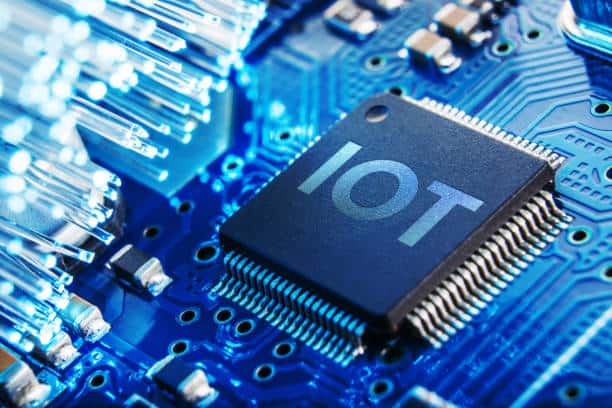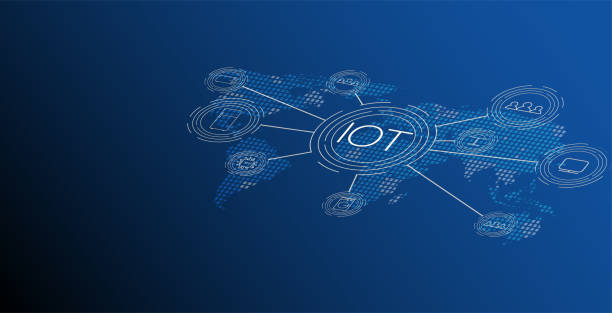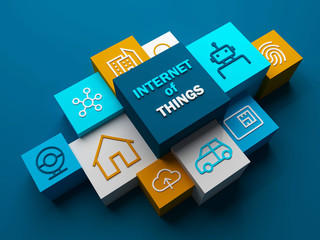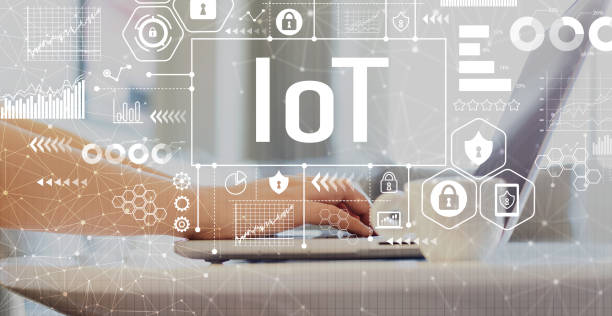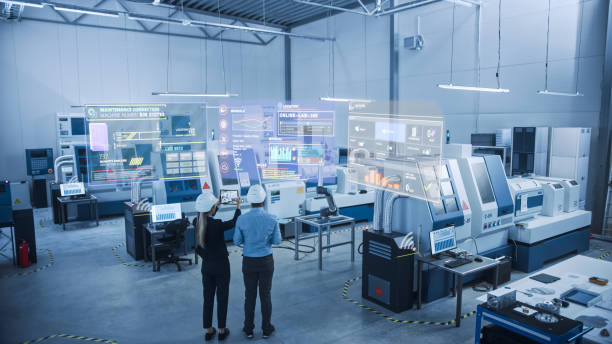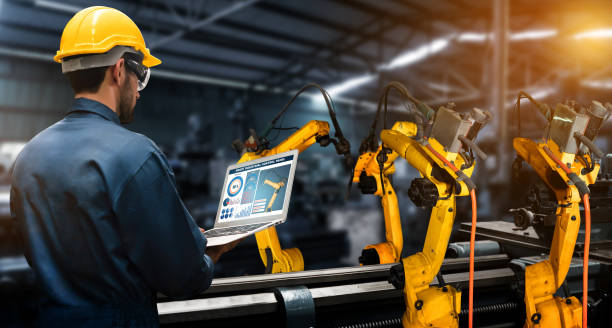Internet of Things (IoT) innovations, benefits, improvements, and applications have become a major topic in the mainstream media space in recent years. The entire concept features the automatic cooperation of millions of different appliances within a global infrastructure.
The technology is nearly three decades old but its speedy development started recently. Some inventors take the Internet of Things idea to the extreme by trying to connect toothbrushes, toasters, and trash cans to the Internet. The network of ‘smart’ devices offers many advantages that aim to improve people’s daily lives.
The IoT concept is characterized by two defining features which are automation and connectivity. In the case of automation, the idea of IoT features direct communication between separate apparatuses, devices, and other hardware without any human interference. The Internet of Things provides enhanced connections within a single network on a global scale offering easy and quick access to a variety of information sources.
By looking at these features, IoT needs to employ many technologies to guarantee automatic data analysis, transfer, and response between many devices. For instance, automation cannot happen without Big Data, Artificial Intelligence (AI), and Machine Learning. On the other hand, connectivity is majorly facilitated by wireless communication technologies and cloud computing.
IoT comes with many benefits and shortcomings for businesses, individuals, and businesses. However, the technology is implemented and utilized differently in different places. In most cases, the benefits are integrated to some extent which means that one advantage leads to the other, which results in a chain reaction of multiple positive effects.
Enhanced Productivity Of Staff And Minimized Human Labor
In most cases, the Internet of Things solutions ensures that mundane tasks can be accomplished automatically. Thus, human resources can be transferred to more complex tasks that need personal skills, mainly out-of-the-box thinking. In that case, the total number of workers can be reduced resulting in minimal costs of business operations.
Internet of Things Supports Efficient Operation Management
Another notable advantage that is provided by the integration and interconnection of smart devices is automated control over many operation areas, including shipping tracking, inventory management, fuel, and spare part management.
For instance, this strategy features the use of RFID tags and a corresponding network of sensors that track the location of goods and equipment.
Better Use Of Assets And Resources
The automatic monitoring and scheduling implemented with the assistance of interconnected and integrated sensors support higher efficiency of resource use, including water consumption and improved power management.
For example, the installation of simple motion detectors can save considerable amounts of money used for water and electricity bills. Such a move makes small and big businesses more productive and eco-friendly.
Affordable Operations
As a result of the reduced downtime periods, guaranteed by automated schedules and controlled maintenance, raw materials supply, and other manufacturing needs, the equipment might have a higher production rate which results in a bigger profit margin. IoT devices majorly facilitate management within distinct and individual departments and across the entire enterprise structure.
Improved Operation And Work Safety
Adding on to the aforementioned benefit, scheduled maintenance is highly beneficial for boosting operational safety and compliance with all the needed regulations. Safe working conditions make enterprises and businesses more attractive for partners, investors, and personnel, increasing brand reputation and trust.
The involvement of smart devices also minimizes the probability of human errors during different stages of business operations. This strategy contributes to high levels of safety at the workplace.
Furthermore, a network of Internet of Things devices like motion sensors, surveillance cameras, and other monitoring devices can be used mainly to enhance the security of a business or enterprise. It averts potential cases of theft and corporate espionage.
Extensive Marketing And Business Development
The smart devices that are found at home, mostly the voice assistants and other appliances that can readily communicate with the smart homeowner regularly, offer a lot of information for business analysis.
Internet of Things assists the operations of enterprises by gathering huge volumes of user-specific data. The data is used for developing business strategies, fine-tuning price policy, targeted advertising, and other management and marketing activities.
Functional And Enhanced Customer Service And Retention
The already mentioned collection of user-specific data acquired using smart devices also assists businesses in understanding the expectations and behavior trends of customers better.
IoT also boosts customer service by offering follow-ups after sales like automatic tracking and reminding clients about necessary and scheduled maintenance of acquired equipment after its predefined period of use, the expiry of warranty periods, and much more.
Improved And Quality Business Opportunities
The increased effectiveness that comes with the Internet of Things technology and solutions enable companies and institutions to offer a wide variety of services and products. These solutions also help in increasing the quality of the products when compared with competitors, without increasing prices.
Furthermore, a company that integrates IoT solutions in its operations can perform more complex tasks about production time, difficulty, and quantity. In general, the use of smart solutions makes a company more attractive and competitive as a possible business partner.
More Trustworthy And Dependable Company Image
A brand that uses high-tech solutions, and the Internet of Things, mainly makes a positive impression on investors, clients, and other business partners who know many advantages offered by the IoT technology. it is also easier to attract the highly-sought experienced staff in case a firm offers a safe and secure working environment mostly guaranteed by a network of smart devices.
The Shortcomings Of Internet Of Things For Businesses
Although the benefits of the Internet of Things are desirable in that they increase the profit margins of businesses, the technology also comes with various shortcomings and threats. Here are some of these disadvantages associated with IoT.
Security Flaws
Inadequate security measures are the main shortcomings that restrict the development of IoT in general. The fear of data leaks is always there since smart devices collect and transmit a lot of confidential information that can result in drastic consequences when and if revealed.
Notably, IoT solutions do not have enough anti-tampering means or comply with every applicable data protection standard, encryption protocols, and other regulations and limitations created to prevent illegal access to users’ sensitive data.
The failure to ensure sufficient data protection may result in expensive, disastrous, and sometimes tragic consequences. Some of the consequences include loss of corporate secrets, identity thefts, product sabotage, equipment sabotage, and much more.
That is the reason why the development and implementation of Internet of Things solutions in business need to be done by experts and professionals. When installed correctly, they can guarantee that all installed software and hardware systems have no vulnerable spots and are fully protected from all types of hacking attempts.
Associated Costs
The installation and implementation of IoT infrastructure in any business enterprise require the development of a massive network that consists of many smart devices. The technical infrastructure needed in this process including communication networks and the power supply grid is quite expensive.
Hence, such an initiative needs a lot of funds to install, maintain, and slowly expand the network based on future needs. Although the Internet of Things solutions offer many advantages, they need lots of time before they break even and become profitable. Eventually, the IoT solutions’ financial benefits surpass the initial cost of their installation and implementation.
Power Supply Dependence
Even though IoT suggests that it brings benefits through the autonomous operation of many devices, the network remains majorly dependent on external factors that need to be considered to implement it fully and successfully in a business.
Most importantly, smart devices are fully dependent on a sufficient and stable supply of electricity. Therefore, a well-planned extra power supply system must be available. It should consist of a suitable number of UPS devices, surge protectors, and other viable equipment with the best ingress protection (IP) ratings in the market.
Network Dependence
The primary feature of the Internet of Things is the intensive amount of interconnections that exist between different devices and access to the global networks. For that reason, all IoT devices need a system that guarantees that there is uninterrupted wired and wireless communication with extensive throughput, low latency, and continuous access to the Internet.
Therefore, to enjoy the benefits of IoS, a company first needs to offer the whole range of the needed networking equipment including local data storage means, hubs, routers, cables, and others.
High Skill Needed
Internet of Things solutions mainly needs responsible and experienced professionals who wholly understand the scope and possible consequences of the work that they do. Setting up, deploying, maintaining, and then changing the scale of IoT solutions in a company or institutions require highly skilled administrators who might be hard to find and recruit since they would demand high salaries.
All workers who would be needed to deal with the implemented network of smart devices should go for proper training and use the provided sets of instructions correctly. While IoT mitigates the need for human resources, the other staff needs to be well-trained to avoid disrupting the operation of smart devices and not to result in the formation of the ‘snowball effect.’
Conclusion
The Internet of Things is said to be among the most promising digital technologies that will become widespread and commonly useful in the coming years. Even currently, IoT solutions are proving to be impressive, and their benefits seem to be worth the investment.
But, it is critical to note that the linking of IoT in an enterprise or any institution needs lots of effort and know-how to achieve the benefits without exposing the business to its drawbacks.
Therefore, the most reasonable action to take is to use the services of responsible and experienced professionals to get an effective IoT solution.
